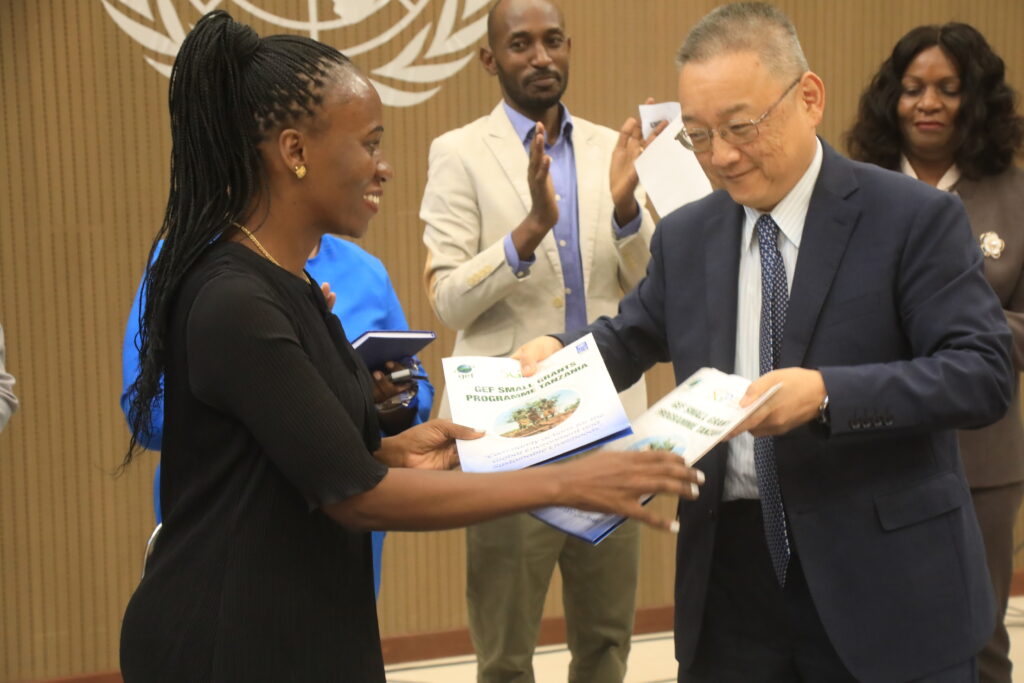Dar es Salaam. The Global Environment Facility (GEF) Small Grants Program, managed by the United Nations Development Programme (UNDP), is set to inject USD 1.6 million (equivalent to Sh4.04 billion) into 44 Civil Society Organizations (CSOs) throughout Tanzania Mainland.
The funding aims to support community-based projects focused on biodiversity conservation under the 7th Operational Phase of GEF funding.
In a ceremonious signing event spearheaded by UNDP Resident Representative Mr Shigeki Komatsubara, stakeholders from the Vice President’s Office, participating CSOs, and the National Steering Committee for the GEF Small Grants Programme convened to mark this significant initiative.
Over the course of the next 20 months, these grants will serve as catalysts for communities to implement biodiversity conservation initiatives. This support is envisioned to empower local populations to take charge of their environmental resources, foster alternative income streams, and combat local environmental challenges head-on.
The array of projects encompasses diverse activities ranging from tree planting and beekeeping to forest and water source preservation, livestock management, beach and sea turtle conservation, wetland management, ecotourism, and agroforestry endeavors, among others.
The overarching objective is to enhance the capacity of local communities to address environmental issues through locally-driven solutions.

Speaking at the agreement signing ceremony, UNDP Resident Representative Mr Shigeki Komatsubara underscored the indispensable role of community engagement in natural resource management.
He emphasized, “Tanzania’s extensive natural endowments necessitate active participation from communities in conservation and sustainable resource utilization, which are pivotal for both local and national development.” He further accentuated the role of the Small Grants Programme as a catalyst for transformative change, attracting strategic investments from partners into community-led initiatives.
The 44 projects are expected to benefit approximately 5,000 Tanzanians residing in rural areas, with special focus directed towards key landscapes including the Serengeti ecosystem, West Kilimanjaro/Lake Natron, and the Jozani ecosystem in Zanzibar.
Under the oversight of the Vice President’s Office, the Small Grants Programme in Tanzania has been instrumental in driving community-based projects on biodiversity conservation, climate change mitigation, and sustainable land management.
In 2023, it allocated USD 2 million (Sh5 billion) for similar endeavors during the 8th Operational Phase of GEF, showcasing a sustained commitment to environmental stewardship and community empowerment.
The injection of funds into these community-driven initiatives not only promises tangible benefits for biodiversity conservation but also underscores a broader commitment towards sustainable development in Tanzania.
As these projects take root and flourish, they are poised to serve as beacons of hope and resilience in the face of environmental challenges, showcasing the transformative power of grassroots action and collaborative partnerships.


